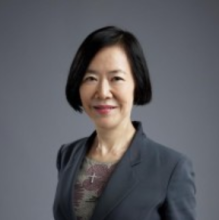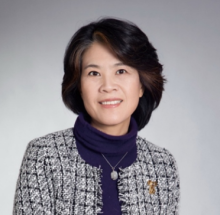Women on Boards Hong Kong 2020: Q1


Percentage of Women on Hang Seng Index (HSI) Boards
2 January 2020
We are disappointed that, for the first time since we started to report on Women on Boards in Hong Kong in 2009, we have seen a year-on-year drop in female representation, from 13.9% to 13.6%, with the actual number of women in board seats at 81 compared with 594 men.
As we begin a new decade, the stagnation in Hong Kong with regard to female representation on boards is a worrying sign that Hong Kong business is falling behind other markets. Hong Kong considers itself ‘Asia’s World City’ and a top international financial centre. Although the ambition is there, it is not backed up by concrete actions and a culture that embraces diversity and inclusion.
We must reiterate again our message that having a gender diverse board is not about optics, but about solidifying your business. A board made up of different, even conflicting, perspectives and life experiences encourages a culture of questioning and robust discussion. This will not only help to mitigate risks and strengthen governance but ensure a higher probability of business success, which is backed by a growing body of research. In these volatile and disruptive times, companies should demand a strong, diverse board that futureproofs their existence.
Summary of Gender Diversity on HSI Boards
Companies with at least one female director
- Jan 2020
- Jan 2019
- Jan 2018
- Jan 2017
Companies with multiple female directors
- Jan 2020
- Jan 2019
- Jan 2018
- Jan 2017
Companies with female executive directors
- Jan 2020
- Jan 2019
- Jan 2018
- Jan 2017
Companies with female CEOs
- Jan 2020
- Jan 2019
- Jan 2018
- Jan 2017
Companies with all-male boards
- Jan 2020
- Jan 2019
- Jan 2018
- Jan 2017
2 January 2020
In addition to the headline statistics on the representation of women on Hong Kong’s listed boards, the bad news doesn’t stop there. It is frustrating to see no positive trends across our diversity markers at the start of 2020. Companies with at least one female director, companies with multiple female directors and companies with female executive directors have all decreased since this time last year.
Despite the removal of Tencent from our ‘all-male boards’ category in 2019, the number remains at 11 or 22%, a less favourable position compared with January 2019 when we reported 10 companies.
Women on Boards League Table: HSI
Most eventful
Top 10
- % Women
- 41.67%
- Board Size
- 12
- No. of Women
- 5
- Stock Code
- 5
- Chairperson
- Tucker, Mark Edward 杜嘉祺
- Female Directors
- Casey, Kathleen Louise 祈嘉蓮; Cha Shih, Laura May Lung 史美倫; Lee, Irene Yun Lien 利蘊蓮; Miller, Heidi 苗凱婷; van der Meer Mohr, Pauline 梅爾莫;
- % Women
- 38.46%
- Board Size
- 13
- No. of Women
- 5
- Stock Code
- 11
- Chairperson
- Ch'ien, Raymond Kuo Fung 錢果豐
- Female Directors
- Cheang, Louisa Wai Wan 鄭慧敏; Chiang, Lai Yuen 蔣麗苑; Gan, Kathleen Chieh Huey 顏杰慧; Kwan, Margaret Wing Han 關穎嫺; Lee, Irene Yun Lien 利蘊蓮;
- % Women
- 36.36%
- Board Size
- 11
- No. of Women
- 4
- Stock Code
- 823
- Chairperson
- Allen, Nicholas
- Female Directors
- Tan, May Siew Boi 陳秀梅; Tan, Poh Lee 陳寶莉; Tse, Nancy Sau Ling 謝秀玲; Young, Elaine Carole
- % Women
- 33.33%
- Board Size
- 9
- No. of Women
- 3
- Stock Code
- 1088
- Chairperson
- Wang, Xiangxi 王祥喜
- Female Directors
- Jiang, Bo 姜波; Tam, Maria Wai Chu 譚惠珠; Zhong, Christina Yingjie 鍾穎潔
- % Women
- 33.33%
- Board Size
- 12
- No. of Women
- 4
- Stock Code
- 1177
- Chairperson
- Tse, Theresa Y Y 謝其潤
- Female Directors
- Cheng, Cheung Ling 鄭翔玲; Li, Mingqin 李名沁; Lu, Hong 魯紅; Tse, Theresa Y Y 謝其潤
- % Women
- 25.00%
- Board Size
- 12
- No. of Women
- 3
- Stock Code
- 3988
- Chairperson
- Liu, Liange 劉連舸
- Female Directors
- Chao, Angela A 趙安吉; Wang, Xiaoya 汪小亞; Xiao, Lihong 肖立紅
- % Women
- 25.00%
- Board Size
- 20
- No. of Women
- 5
- Stock Code
- 66
- Chairperson
- Auyeung, Rex Pak Kuen 歐陽伯權
- Female Directors
- Chan Yuen, Dorothy Tak Fai 陳阮德徽; Chan, Mable 陳美寶; Chan, Pamela Wong Shui 陳黃穗; Lee, Rose Wai Mun 李慧敏; Li Li, Lucia Ka Lai 李李嘉麗
- % Women
- 25.00%
- Board Size
- 12
- No. of Women
- 3
- Stock Code
- 19
- Chairperson
- Swire, Merlin Bingham 施銘倫
- Female Directors
- Lee, Rose Wai Mun 李慧敏; Lin, Shirley Syaru 林夏如; Low, Michelle Mei Shuen 劉美璇
- % Women
- 23.53%
- Board Size
- 17
- No. of Women
- 4
- Stock Code
- 1038
- Chairperson
- Li, Victor Tzar Kuoi 李澤鉅
- Female Directors
- Chen, Tsien Hua 陳建華; Kwok Lee, Eva 郭李綺華; Lee Wong, Angelina Pui Ling 李王佩玲; Sng, Sow Mei 孫潘秀美
- % Women
- 23.08%
- Board Size
- 13
- No. of Women
- 3
- Stock Code
- 1113
- Chairperson
- Li, Victor Tzar Kuoi 李澤鉅
- Female Directors
- Hung, Katherine Siu Lin 洪小蓮; Pau, Ezra Yee Wan 鮑綺雲; Woo, Grace Chia Ching 吳佳慶
2 January 2020
Our 2020 Women on Boards League Table sports the same top 5 companies that appeared throughout 2019. HSBC and Hang Seng Bank retain 1st and 2nd positions with 41.67% and 38.46% female representation respectively. Link Real Estate, China Shenhua Energy and Sino Biopharmaceutical make up the remaining top five companies.
Companies which do not have female directors
2 January 2020
With all the arguments and advocacy in support of gender-diverse boards, it is difficult to understand why some corporate boards remain resolute in their resistance to appointing female directors. In Hong Kong, the number of Hang Seng Index companies with all-male boards and those which have never had a female director remain unchanged at 11 and 6 respectively compared with the final quarter of 2019. The last notable movement was the appointment of Yang Ke to the Tencent board last year. Ke’s appointment removed Tencent from the list of companies which have never had a female board member.
The argument that there is a lack of supply of female candidates in Hong Kong is hardly convincing. There are no lack of initiatives in Hong Kong including training programmes to develop a pipeline of women directors and to identify board-ready talent, as well as international executive search firms who provide board advisory and search services.
However, there is a glimmer of hope in this area – in 2019, the Hong Kong Stock Exchange introduced a new measure for new IPO applicants, requiring specific gender diversity disclosures in their IPO prospectuses. In cases where the listing applicant has a single gender board, the applicant will have to explain how and when board gender diversity will be achieved after listing. The prospectus is also required to provide details of measurable objectives that the listing applicant has set to implement gender diversity and the measures it has adopted to develop its board pipeline to achieve board diversity.
2 January 2020
Disappointingly, for the second year in a row, we saw only six female appointments to Hang Seng Index boards, while 65 men were appointed. Female appointments represented a paltry 8% of all appointments during 2019.
-

-

Gan, Kathleen Chieh Huey 顏杰慧
Appt: 10 May 2019NED, Hang Seng Bank Ltd 恒生銀行有限公司 -

Ke, Yang 柯楊
Appt: 15 Aug 2019INED, Tencent Holdings Ltd 騰訊控股有限公司* -

2 January 2020
Shirley Syaru Lin was the only female appointment made in the final quarter of 2019. She was appointed to the Swire Pacific board, replacing Mary Xuezheng Ma who sadly passed away last year.

Norway

United Kingdom

Australia

Canada

United States

Malaysia

New Zealand

Singapore

India

Hong Kong

Japan
This global comparison illustrates just how far behind other leading economies Hong Kong lags. In Asia, we see Malaysia, Singapore and India striding ahead of Hong Kong with 23.7%, 15.7% and 14.0% female representation on their boards respectively. In order to maintain its competitive edge and postion as a top financial centre, Hong Kong must make changes to the way board positions are filled and address the deficit of women in senior leadership positions in the city.
We are disappointed that, for the first time since we started to report on Women on Boards in Hong Kong in 2009, there has been a year-on-year drop in female representation, from 13.9% to 13.6%. This stagnation and the repeated dismissal of this issue by Hong Kong’s business community is very concerning. While other leading economies across the world have embraced the business case for gender-diverse representation at senior levels, Hong Kong continues ignore our calls, evidenced by the fact that only twelve women were appointed to board seats over the last 24 months, while 147 men were appointed during the same period.
In recent years, we have seen a small minority of enlightened Hong Kong listed companies take concrete actions to rectify their gender-homogeneous board makeup. The majority have resisted or paid mere lip-service to the issue by appointing a token woman, before returning to business as usual and a candidate pool taken from ‘the old boys club’. The carrot appears not to be working in Hong Kong: despite increasing acceptance globally that diverse boards signal good governance and facilitate better risk management and decision-making, Hong Kong companies are not changing their ways. This leads us to explore whether it’s time to introduce a stick. A mandated quota has proven to be an effective catalyst in other markets, and while we are hesitant to promote a measure that could undermine truly meritocratic appointments, it might be just the wake-up call that Hong Kong companies need.
